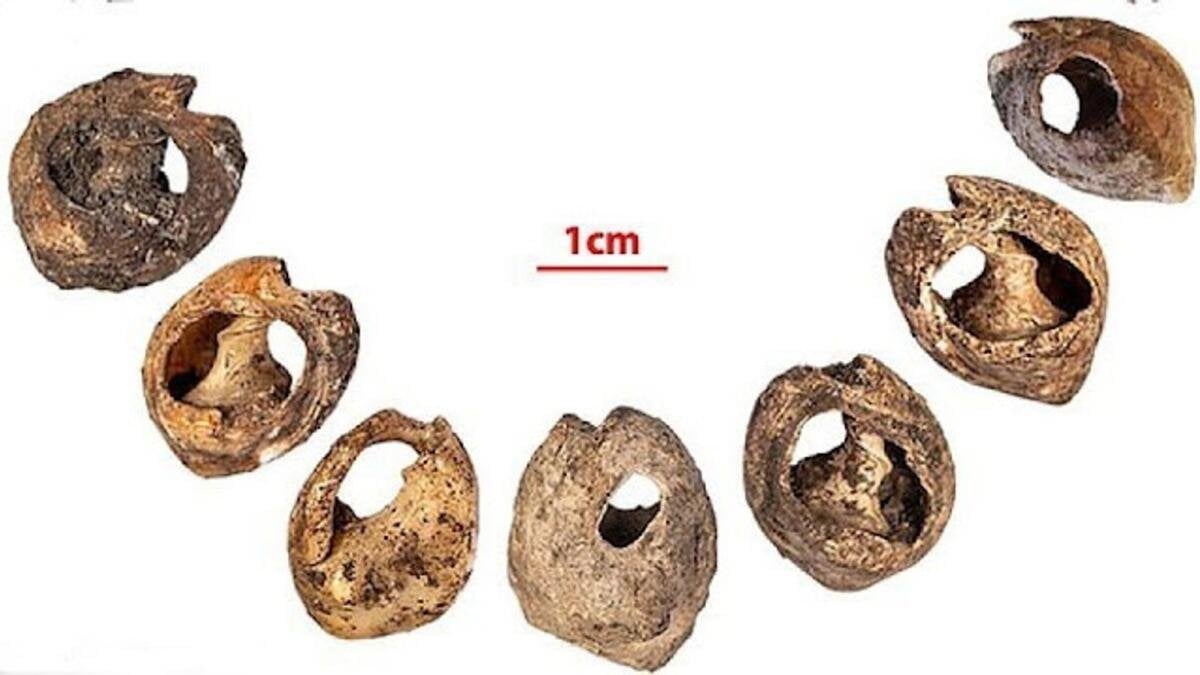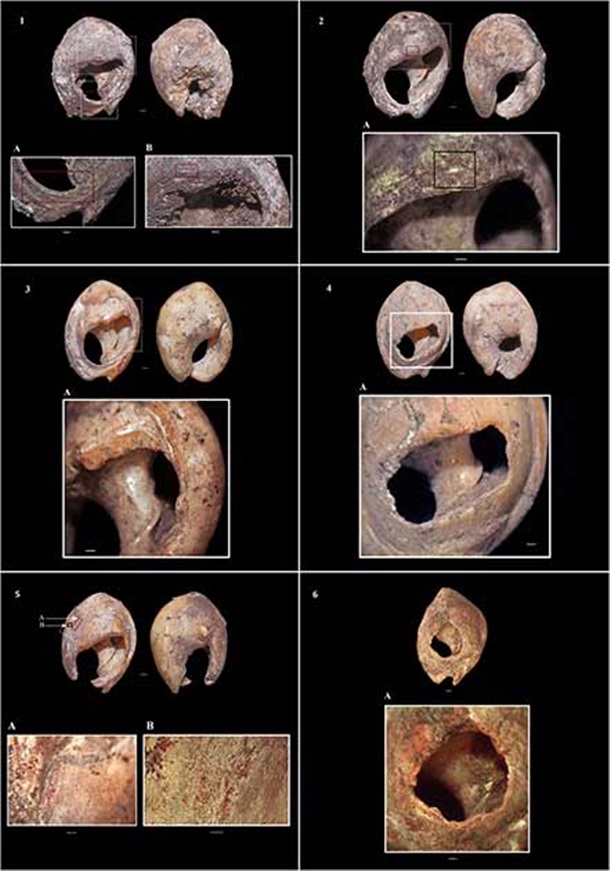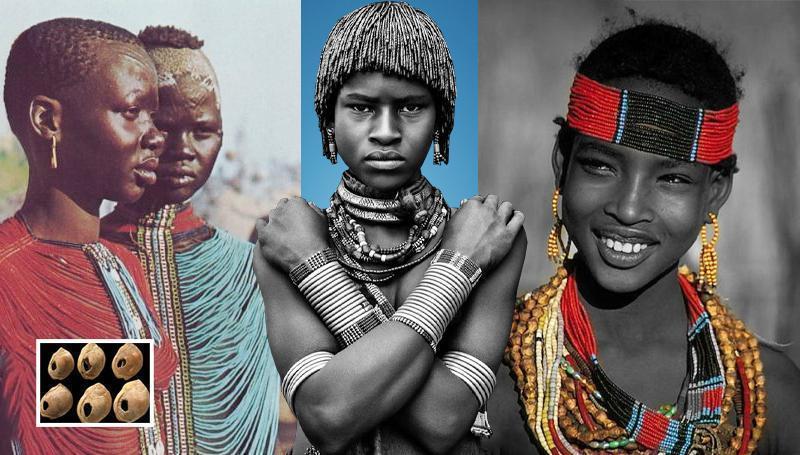Africans drilled tiny holes in snail shells and strung them as beads to create the world’s oldest known jewelry around 75,000 years ago
The beads were discovered in South Africa’s Blombos cave, on the southern Cape coast. The 41 shells were discovered in groups of up to 17 shells. They came from Nassarius kraussianus, a small mollusc scavenger that dwells in estuaries.
As a result, the shell beads, which appear to have been chosen based on size, had to be transported to the Blombos cave from rivers a dozen miles distant. The shells have traces of red ochre, indicating that they were either painted with iron oxide pigment or worn by someone who was wearing cosmetics.

The beads are at least 35,000 years old, dating back to some ostrich eggshell beads discovered in Kenya, and around 30,000 years old, dating back to some perforated teeth ornaments from Bulgaria and a string of seashell beads from Turkey. They are the first examples of artistic symbolism and ingenuity.
The cave project’s director, Christopher Henshilwood of the University of Bergen in Norway, told Science magazine that the discovery is likely one of the earliest signs of abstract cognition observed in our ancestors.
“…Until now, the oldest beads in Africa date to roughly 45,000 years,” Henshilwood added. The finding of 41 shell beads in sand layers at Blombos cave, which have been precisely dated at 75,000 years old, adds to the body of evidence for early symbolically organized behavior in Africa.”

Source:
http://realhistoryww.com/world_history/ancient/Misc/Prehistoric_Art/Grimaldi.htm
https://www.theguardian.com/world/2004/apr/16/artsandhumanities.arts
http://news.bbc.co.uk/1/hi/sci/tech/3629559.stm
 The African History Truly African
The African History Truly African

